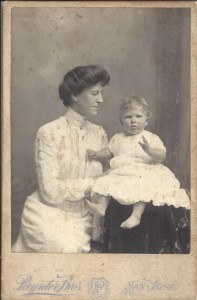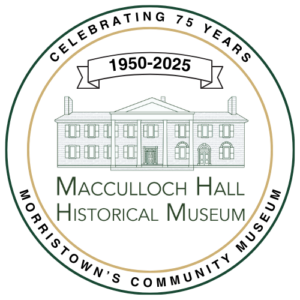Are Women People?
Alice Duer Miller and Women’s Rights
In 1915 in an essay in the Saturday Evening Post, former President William Howard Taft wrote, “The longer the extension of the franchise to women waits, the better they will be prepared for it.” In response, Alice Duer Miller (1874-1942) wrote the following in her syndicated column
“Are Women People?”:
Mr. Taft explains to women
They must really vote some day:
But he thinks that he’ll refuse it
Till all women learn to use it –
When they’re experts, then they may.
Isn’t that extremely gay?
My old grandmother God bless her,
Used to say in accents grim,
‘Till you swim, my dear granddaughter,
You must not go near the water.
When you swim as well as Jim,
Then, of course, we’ll let you swim’.
Alice, a graduate of Barnard College, married Henry Wise Miller, great-grandson of George and Louisa Macculloch, in 1899. This photograph, taken ca. 1903, shows Alice with their son Denning.
In addition to studying mathematics and astronomy, she was an author of novels, poems, and essays. She was a member of the Algonquin Round Table and the first edition of The New Yorker listed her as an “advisory editor”. Her writing career also took her to Hollywood as a screenwriter.
Alice used her writing to promote the women’s suffrage movement through her weekly column for the New York Tribune. She gave speeches and organized events for the Women’s Political Union, American Suffrage Association, and the radical Congressional Union for Women Suffrage. She was instrumental in the passage of the New York State Women Suffrage Referendum in 1917 that led to the ratification of the 19th Amendment to the Constitution in 1920 giving women the right to vote.
Her 1940 poem The White Cliffs, a narrative on the tragedy of wartime loss, became a popular success in both the United States and England. It was later made into a film. Winston Churchill believed that it played an important role in gaining American support for the British war effort.
Alice’s greatest impact was promoting women’s rights. She offered this definition of feminism in a poem written in 1915:
Mother, what is a Feminist?
A Feminist, my daughter,
Is any woman now who cares
To think about her own affairs
As men don’t think she oughter.


